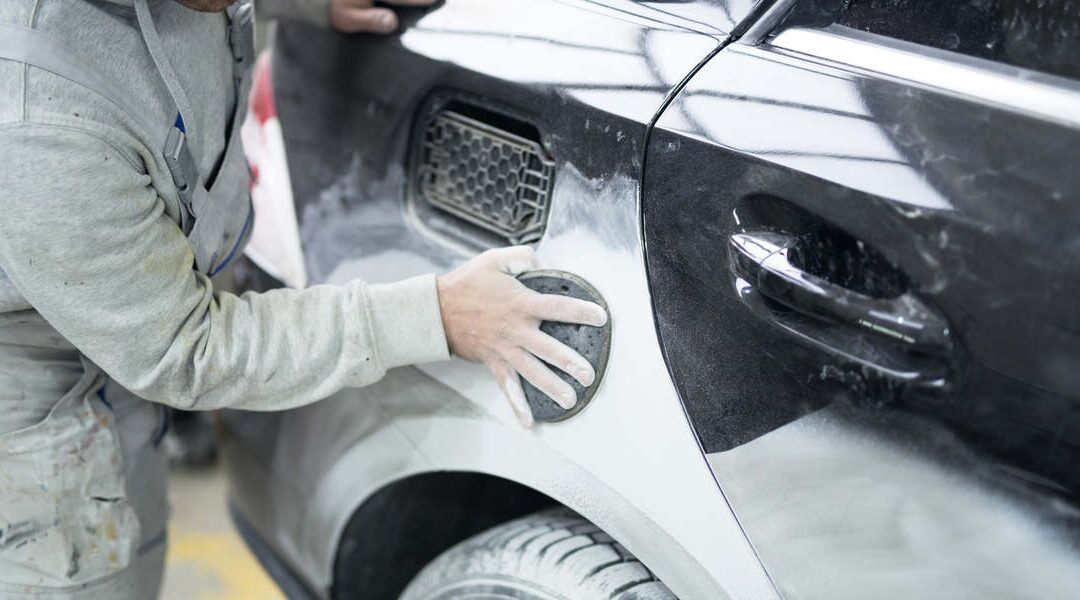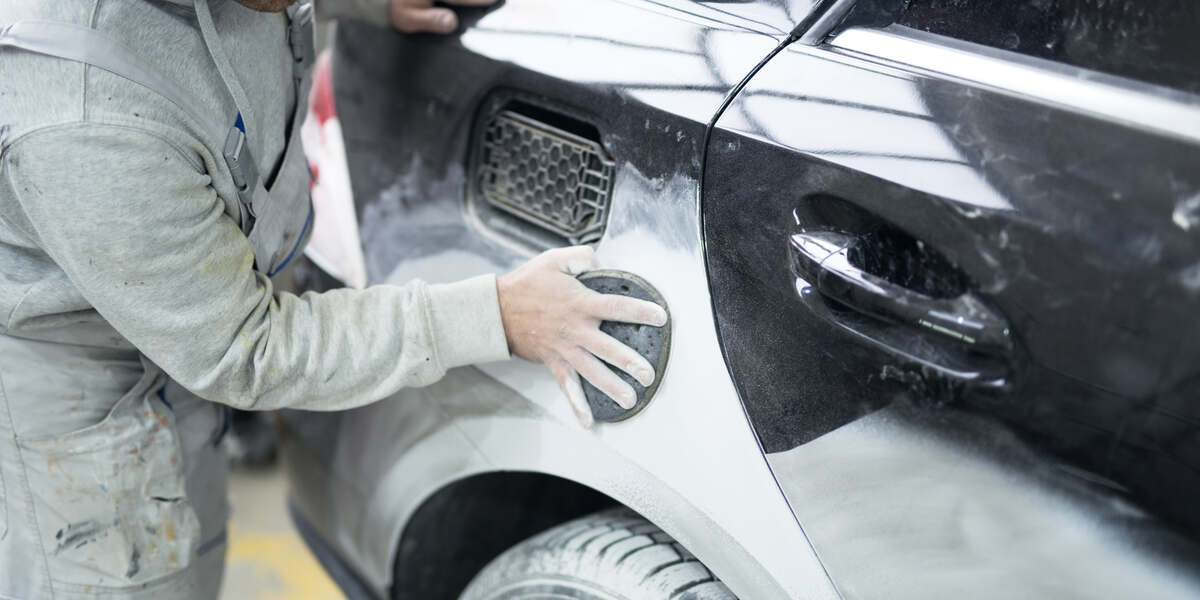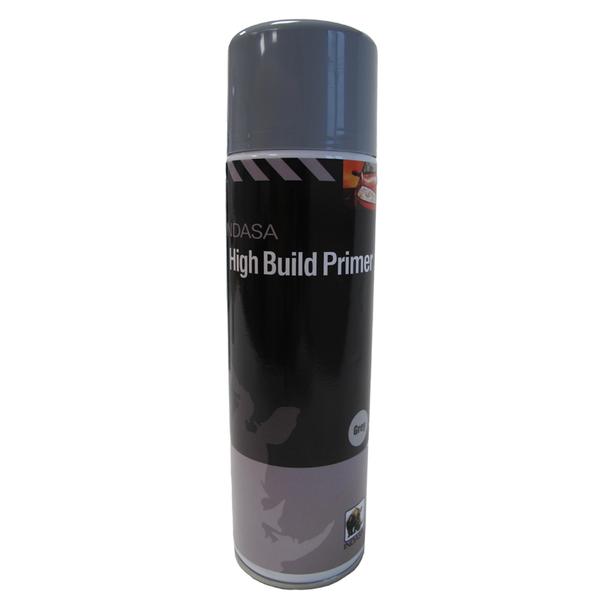Painting a car without primer can lead to poor adhesion, uneven finish, and reduced durability. Without primer, the paint may not adhere properly to the surface, resulting in peeling or flaking over time.
Additionally, the lack of primer can cause the paint to dry unevenly, leaving visible brush or roller marks. Moreover, primer helps to protect the underlying surface from corrosion and provides a smooth base for the paint to adhere to. Using primer is essential for ensuring a long-lasting and professional-looking paint job on a car.
By applying primer before painting, you can achieve better adhesion, a smoother finish, and enhanced durability.

Credit: www.cuttingedgeref.com
Contents
Introduction To Primer Importance
Before diving into the world of car painting, it’s crucial to understand the pivotal role that primer plays in the process. Primer acts as the foundation for the paint, providing essential benefits such as adhesion, corrosion resistance, and overall durability. Without properly applying primer, the quality and longevity of the paint job could be compromised.
Primer Basics
Primer serves as the initial layer between the bare metal surface of a car and the paint. It prepares the surface, ensuring that the paint adheres evenly and effectively. Without primer, the paint may not bond properly, leading to peeling, chipping, and an uneven finish.
Role In Car Painting
Primer plays a crucial role in the car painting process by providing a smooth and consistent base for the paint to adhere to. It also helps to prevent rust and corrosion, ultimately contributing to the overall longevity of the paint job. By creating a strong bond between the surface and the paint, primer ensures a professional and durable finish.
Adhesion Compromises
When a car is painted without primer, it can lead to significant adhesion compromises, resulting in issues such as paint peeling and uneven surfaces. These problems can affect the overall appearance and longevity of the paint job, ultimately diminishing the quality and value of the vehicle.
Paint Peeling
Paint peeling is a common consequence of painting a car without primer. Without the primer’s adhesive properties, the paint may struggle to properly bond with the car’s surface, leading to eventual peeling and flaking. This can result in unsightly patches of exposed metal and a deteriorating finish.
Uneven Surfaces
Uneven surfaces are another issue that arises when primer is omitted. The absence of primer can cause the paint to adhere unevenly, creating a bumpy or rough texture. This can detract from the car’s aesthetic appeal and may require additional corrective measures to achieve a smooth, professional finish.
Durability Concerns
Painting a car without primer can lead to durability concerns. Without a primer, the paint may not adhere properly to the surface, resulting in peeling, flaking, and a shorter lifespan for the paint job. It is crucial to use primer to ensure a long-lasting and durable finish.
Durability Concerns Painting a car without primer might seem like a quick and easy solution, but it can have serious consequences for the durability of your car’s paint job. Without primer, the paint will not adhere properly to the car’s surface, causing a range of issues including peeling, chipping, and fading. In this post, we will focus on the durability concerns of painting a car without primer, including the shortened paint lifespan and increased vulnerability to elements. Shortened Paint Lifespan The first durability concern of painting a car without primer is the shortened lifespan of the paint. Without primer, the paint will not have a strong foundation to adhere to, causing it to deteriorate faster than it would with a proper primer coat. This means that your car’s paint job will likely need to be redone sooner than if primer had been used. In addition, the paint may not hold up as well over time, making it more prone to scratches and other damage. Increased Vulnerability to Elements Another major concern of painting a car without primer is the increased vulnerability to elements. Without primer, the paint will not have the protection it needs from things like UV rays, rain, and other environmental factors that can cause damage to your car’s paint job. This can lead to fading, chipping, and other forms of damage that will require costly repairs. To summarize, painting a car without primer can have serious durability concerns, including a shortened paint lifespan and increased vulnerability to elements. If you want your car’s paint job to last and look good for years to come, it’s important to invest in a proper primer coat before painting. Don’t risk damaging your car’s appearance and value by skipping this important step.Aesthetic Flaws
Painting a car without primer can lead to aesthetic flaws. Without the proper base, the paint may not adhere properly, resulting in uneven texture, peeling, and an overall unprofessional finish. It is crucial to use primer to ensure a smooth and long-lasting paint job.
When it comes to painting a car, applying primer is an essential step in achieving a flawless finish. The primer creates a smooth surface for the paint to adhere to, ensuring an even and consistent color. However, some people may choose to skip this step, either due to lack of knowledge or as a shortcut to save time and money. While it may seem like a good idea in the short term, painting a car without primer can lead to several aesthetic flaws that can ultimately detract from the vehicle’s appearance.Color Inconsistencies
One of the most noticeable issues that can arise from painting a car without primer is color inconsistencies. Without a primer layer, the paint may not adhere evenly to the car’s surface, resulting in uneven color distribution. This can create a blotchy or streaky appearance, with some areas appearing darker or lighter than others. In addition, the lack of primer can cause the paint to fade or peel more quickly over time, further exacerbating color inconsistencies.Surface Imperfections
Another issue that can arise from skipping the primer step is surface imperfections. Without a primer layer to fill in any gaps or scratches, the paint may highlight these imperfections rather than covering them up. This can result in a bumpy or uneven surface, with visible dents, scratches, or other damage. In addition, the lack of primer can make the paint more prone to chipping or cracking, further exacerbating any surface imperfections. In conclusion, while it may be tempting to skip the primer step when painting a car, doing so can lead to several aesthetic flaws that can ultimately detract from the vehicle’s appearance. From color inconsistencies to surface imperfections, the lack of primer can cause a range of issues that can make the paint job look unprofessional and unsightly. To ensure a flawless finish, it’s best to take the time to apply a proper primer layer before painting the car.Protection Against Rust
When you paint a car without primer, you are essentially leaving the metal vulnerable to the elements. The absence of primer means that the metal is not shielded from moisture, which can lead to the formation of rust. Let’s delve into the significance of primer in protecting a car against rust.
Rust Formation
Rust forms when moisture comes into contact with bare metal. This process is accelerated when the metal is not adequately protected, such as when paint is applied without primer.
Primer As A Barrier
Primer acts as a protective barrier between the metal and the elements. It prevents moisture from reaching the metal surface, thereby inhibiting the formation of rust.

Credit: www.cuttingedgeref.com
Cost Implications
When considering the cost implications of painting a car without primer, it’s essential to recognize the potential long-term expenses that may arise. While skipping the primer may seem like a way to save money initially, the decision can lead to significant financial ramifications down the road.
Initial Savings Vs. Long-term Costs
Choosing to forgo the use of primer when painting a car may result in initial cost savings. However, without the protective layer provided by primer, the paint may not adhere properly to the surface, leading to premature chipping, peeling, and fading. This can result in the need for more frequent repainting, ultimately leading to escalating expenses.
Resale Value Impact
The decision to paint without primer can significantly diminish the resale value of a car. Inadequate adhesion of the paint due to the absence of primer can result in a deteriorated appearance, reducing the appeal of the vehicle to potential buyers. Consequently, this can lead to difficulty selling the car and decreased resale value.
Professional Perspectives
Professional Perspectives:
Expert Opinions:
According to automotive experts, painting a car without primer is not recommended. Primer is essential to prepare the surface of the car for paint and ensure a smooth and even finish. Without primer, the paint may not adhere properly, causing it to peel, crack, or fade quickly. Experts recommend using a high-quality primer designed for automotive use to ensure the best results.
Case Studies:
Several case studies have shown the negative effects of painting a car without primer. One study found that a car painted without primer had a significantly shorter lifespan compared to a car painted with primer. Another study showed that the paint on a car without primer was more prone to chipping and flaking, leading to rust and other damage.
Overall, it is clear that using primer is a crucial step in the automotive painting process. Skipping this step may save time and money in the short term, but it can lead to costly and time-consuming repairs down the line.

Credit: carpaintexperts.com
Correcting The Mistake
Stripping Paint
Before correcting the mistake of painting a car without primer, it’s essential to strip the existing paint. This process involves using a chemical paint stripper or sanding the surface to remove the paint entirely.
Proper Application Techniques
Once the old paint is stripped, it’s crucial to properly prepare the surface before applying primer. This involves thorough cleaning, sanding, and ensuring the surface is free from any contaminants or imperfections. After preparation, applying a high-quality automotive primer using proper techniques is essential to ensure a smooth and durable base for the new paint.
Frequently Asked Questions
Q: Can You Paint A Car Without Primer?
A: Yes, you can paint a car without primer, but it is not recommended. Primer helps to bond the paint to the surface, improve color uniformity, and prevent rust and corrosion. Skipping primer can lead to paint peeling, flaking, and cracking.
Q: What Happens If You Don’t Use Primer On Metal?
A: If you don’t use primer on metal, the paint may not adhere properly to the surface, leading to peeling and flaking. The metal may also rust and corrode faster, as the primer acts as a protective layer. Primer improves the durability and longevity of the paint job.
Q: How Many Coats Of Primer Do You Need On A Car?
A: It is recommended to apply at least two coats of primer on a car. The first coat helps to fill in any imperfections and create a smooth surface, while the second coat improves adhesion and durability. However, the number of coats may vary depending on the type of primer and the condition of the surface.
Q: What Is The Purpose Of A Primer?
A: The purpose of a primer is to prepare the surface for painting by improving adhesion, filling in imperfections, and providing a uniform base color. Primer also protects the surface from rust, corrosion, and other damage. It helps the paint to bond better and last longer.
Conclusion
Applying paint without primer on a car can lead to various issues. Without primer, the paint may not adhere properly, leading to peeling, bubbling, and premature wear. Additionally, the lack of primer can result in an uneven finish and reduced durability.
Therefore, using primer is crucial for a successful and long-lasting paint job.
